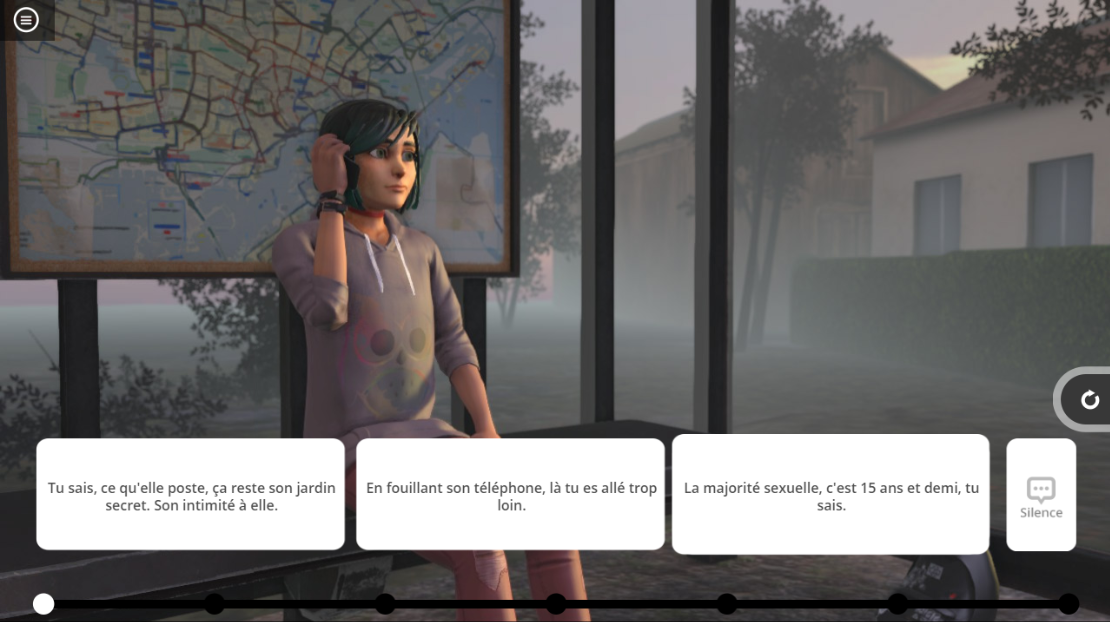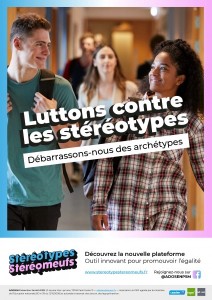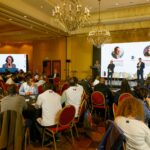In this unusual context, and in response to the challenges posed by Covid-19, Adosen (an MGEN association), continues to work on prevention and health promotion towards educational communities. The association has set up online interventions aimed at young people, encouraging them to reflect on the impact of the coronavirus in their daily lives and to leading them identify for themselves ways to reduce its undesirable effects. In keeping with this young people’s empowerment approach , on April 30, Adosen reached out to education stakeholders by hosting a webinar on “how to prevent without prescribing”. An opportunity, on the eve of schools reopening in France, to present educators with the scope of Adosen’s approach and tools to help them address health issues with students and place them at the heart of the action.
In this unusual context, and in response to the challenges posed by Covid-19, Adosen (an MGEN association), continues to work on prevention and health promotion towards educational communities. The association has set up online interventions aimed at young people, encouraging them to reflect on the impact of the coronavirus in their daily lives and to leading them identify for themselves ways to reduce its undesirable effects. In keeping with this young people’s empowerment approach , on April 30, Adosen reached out to education stakeholders by hosting a webinar on “how to prevent without prescribing”. An opportunity, on the eve of schools reopening in France, to present educators with the scope of Adosen’s approach and tools to help them address health issues with students and place them at the heart of the action.
” ‘What is good for me ?’ is a question that gets a variety of answers; mostly subjective ones. It is because we are all different, and that’ s the complexity of the prevention approach” introduces Sofia El Yousfi, General Delegate, and co-host of the Adosen Webinar.
Through its activities, Adosen has observed that a preventive action is never neutral, since it means inciting people to act in a way that seems right to us, according to our values. While the validity of these values can be supported by exposable scientific facts, it is however essential to take young people’s vulnerability to our prevention messages into account.
The question therefore arises as to how we can promote and encourage the values we want to convey without imposing them. The association has thus established guidelines for implementing a “reflective” prevention approach. It meets the requirements raised and is articulated in 2 phases:
- Mobilise reflexive and dialogical skills: help young people reflect, and become aware of their thoughts as well as the ways in which they reach their conclusions. Help them to build judgment through dialogue and ensure that meaningfulness is built from within, between pairs, not just from adult to student.
- Provide information: enable young people to make enlightened choices by combining information with the students’ reflective work through dialogue. Help students evaluate the information they will be given and ask themselves what criteria will guide their decision-making process, so that they can choose the direction they want to take with the information.
But this task is not simple, explains Agathe Delanoë, Project Manager, there are important risks linked to the position of authority that educators have; they can intimidate and thus prevent (even involuntarily) students from thinking and acting freely and autonomously. The preventive posture itself carries the risk of moralizing and making young people feel guilty and judged on their behaviour. This leads to a biased communication, preventing any reciprocity in the exchange.
To facilitate the implementation of its reflexive approach with students, Adosen has developed pedagogical tools that are ready to use for the educational personnel. All of these tools come with guides that include dialogue frames and methods to help educators lead various prevention workshops.
- Où est alice ? (Where is Alice)

Serious Game which seeks to understand how the identity and personality of young people are shaped, using social networks and the internet. The student puts him/herself in Charlotte’s shoes (the game’s character) to guide her investigation to find her missing friend using social networks. Multichoice answers or actions are suggested to make the story evolve.
The game can be played with a whole class or in small groups.
Students’ health and well-being diagnostic tool that helps identify and prioritize the topics to discuss with them.

The questionnaire assesses the difference between students’ perceived well-being and their actual well-being (what they think vs what they do). It is anonymous, both for the person who launched the survey and for Adosen, so we cannot know which student answered which question. The educator receives an overall result. This allows the student to feel comfortable with intimate questions. Not only is he or she involved in his/her own diagnosis, but also he/she can answer truthfully and trust that no one will know who he/she is.

A campaign to promote and raise awareness on gender equality through the dismantling of stereotypes.
This is a web series comprising of 4-minute episodes that depicts the different manifestations of stereotypes in everyday life,.The purpose is to help students identify them. The strength of this tool is that it allows young people to see practically, how stereotypes are products of our environment. It also gives students the opportunity to participate directly in the construction of the tool; students from the Gérard Philipe middle school in Paris were thus able to play in the episodes of the Web-Series’ 2nd season and one of the episodes was written by middle school students from the Hérault region of France.
Sofia El Yousfi and Agathe Delanoë point out, however, that while this process is important and effective, it can also take time. Young people are not used to having to clearly identify their thinking mechanisms and draw conclusions from them.For the educator, it is also difficult to remain neutral and be able to ask questions that do not influence the answers. It is hence a process that requires patience and perseverance, to promote health and not impose it.
Adosen is always available for on-site or remote assistance during prevention workshops. The association is also setting up trainings to help educators in their interventions.




